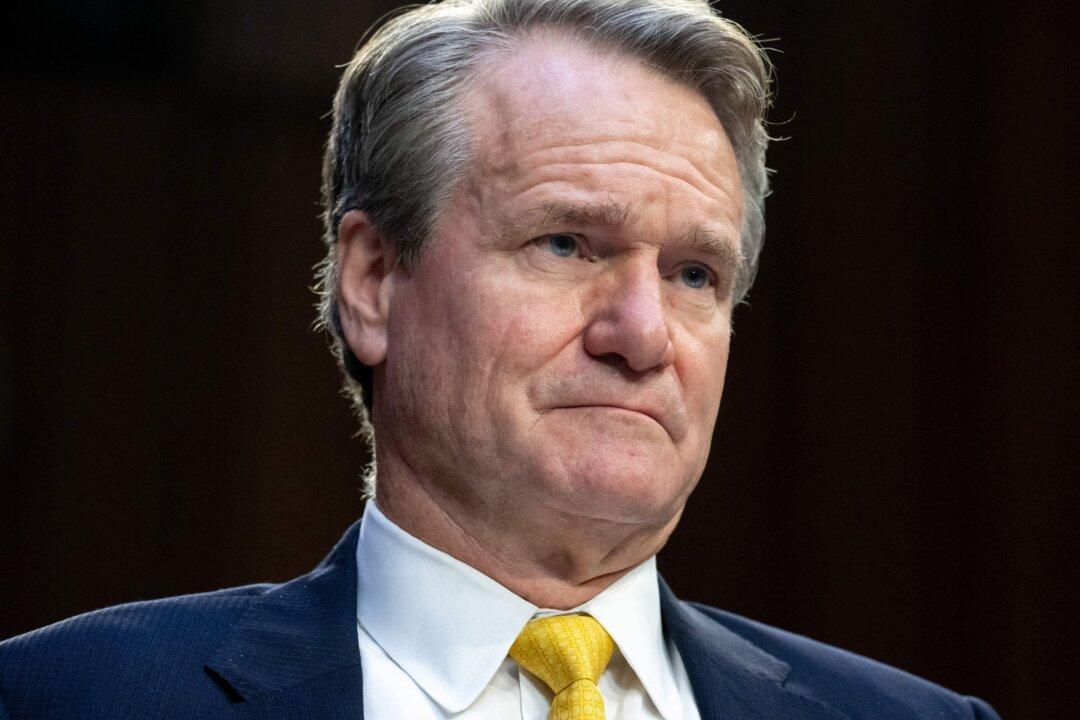Bank of America CEO Brian Moynihan told shareholders this week that “we are capitalists,” after a massive backlash from critics over his bank’s stance on the environmental, social, and governance (ESG) agenda.
The head of America’s second-largest bank is under heavy fire as Wall Street executives face increasing criticism across the country for adopting progressive ESG goals.“I’ve sometimes been surprised to be asked, including at congressional hearings, ‘Are you a capitalist?’” Moynihan said in the bank’s annual report published on Mar. 7.





